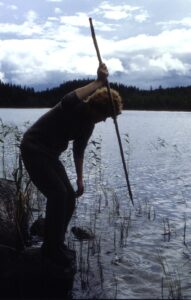
I’ve been reminded several times this week about the power of taboos. They are an interesting feature of human society, always unexpected, often seemingly unprovoked, they can act as powerful agents to change human behaviour. It is all too easy to forget them archaeologically and inhabit some sort of Binfordian Utopia, but we need to pay them heed because they can make people do unexpected things (or not do expected things).
Archaeology relies on the predictable nature of human behaviour. Otherwise we’d never be able to interpret anything. Even the wackiest of our theories has to have been sparked by something, somewhere, that we then apply to the evidence in front of us. And yet the very nature of any taboo means that is unlikely to be exactly replicated elsewhere. So, the conundrum is, how to recognise and interpret a taboo in the past. Three things have got me thinking this week.
The first was an excellent lecture given by Dr Jen Harland of the UHI Archaeology Institute on the consumption of fish in Orkney in the historical period. She presented evidence for the decline in deep water fishing of species such as cod and the rise in consumption of smaller species, and this led to some interesting discussion. Why would people apparently give up on a good food resource? Jen’s research is on going.
It got me thinking. Some of the evidence is similar to that which we see in prehistory, when Neolithic communities apparently eschew marine protein for terrestrial resources. I’ve always seen this as a simple case of the novel allure of burgers and their convenience over fish fingers, but perhaps it went a bit deeper than that. What if there was some sort of taboo relating to the sea in the Neolithic? This is an idea I need to explore.
Finally my colleague Ann Clarke reminded me to consider the power of taboo in my considerations of Doggerland. It is easy to assume that when a community is put under stress they will always follow the easiest path to survival. But does that always happen? What if they have some sort of cultural or social prohibition relating to the course of action that seems most sensible? I’m not sure how we might recognise that in our work on Doggerland, but it is something that we need to factor in.
I guess we all have taboos. They can be hard to break. Sometimes we don’t even recognize them. I’m sure our prehistoric forebears were just the same.
You must be logged in to post a comment.